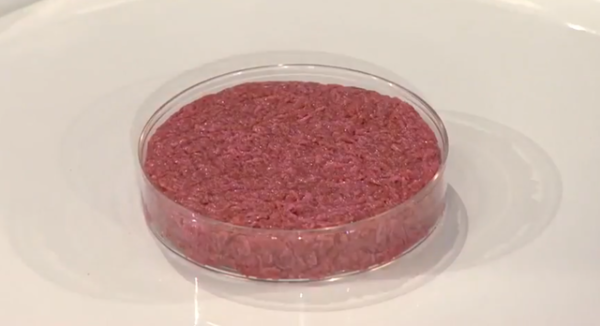Over the past few years, lab-grown meat has become a hot trend, as companies like Impossible Burger and Beyond Meat have become more and more popular.
Even some fast food chains have tried to get into the act. In 2019, for example, Burger King introduced the Impossible Whopper to rave reviews.
Lab-grown meat also means big business. Business Wire noted that “the lab-grown meat market is projected to reach $1.99 billion by 2035, at a CAGR of 24.1% from 2025-2035.”
One place it won’t be growing, however, is Italy.
Reuters reports, “Italy’s government on Tuesday approved a bill banning the use of laboratory-produced food and animal feed as it aims to safeguard the country’s agri-food heritage, its agriculture minister told a news conference after a Cabinet meeting.
If the proposal is passed by parliament, Italian industry will not be allowed to produce food or feed “from cell cultures or tissues derived from vertebrate animals”, the bill seen by Reuters said.
A breach of the rules could result in fines of up to 60,000 euros ($65,022).
‘Laboratory products in our opinion do not guarantee quality, well-being and the protection of our culture, our tradition,’ said Minister Francesco Lollobrigida, a senior member of Prime Minister Giorgia Meloni’s right-wing Brothers of Italy party.
Meloni’s nationalist administration has pledged to shield Italy’s food from technological innovations seen as harmful, and renamed the agriculture ministry the “ministry for agriculture and food sovereignty.'”
“Last November, the US Food and Drug Administration (FDA) cleared cell-cultured chicken for human consumption after “careful evaluation”. In 2020 Singapore gave regulatory approval for lab-grown chicken meat to be used in nuggets.
So far no approval has been authorised within the European Union, but the European Food Safety Authority (EFSA) has made clear that cell-based agriculture such as cultured meat “could be considered as a promising and innovative solution… for healthy and environmentally friendly food systems”.
Commentators pointed out that Italy would not be able to oppose the sale of synthetic meat produced within the EU when it does gain EU approval, because of the free movement of goods and services.
International Organization for Animal Protection (Oipa) stressed that lab-produced meat, while it came from animal cells, was an “ethical alternative” that did not harm animal welfare, environmental sustainability or food safety,” according to The BBC.
[Read More: Pepsi Changes Its Iconic Logo]



